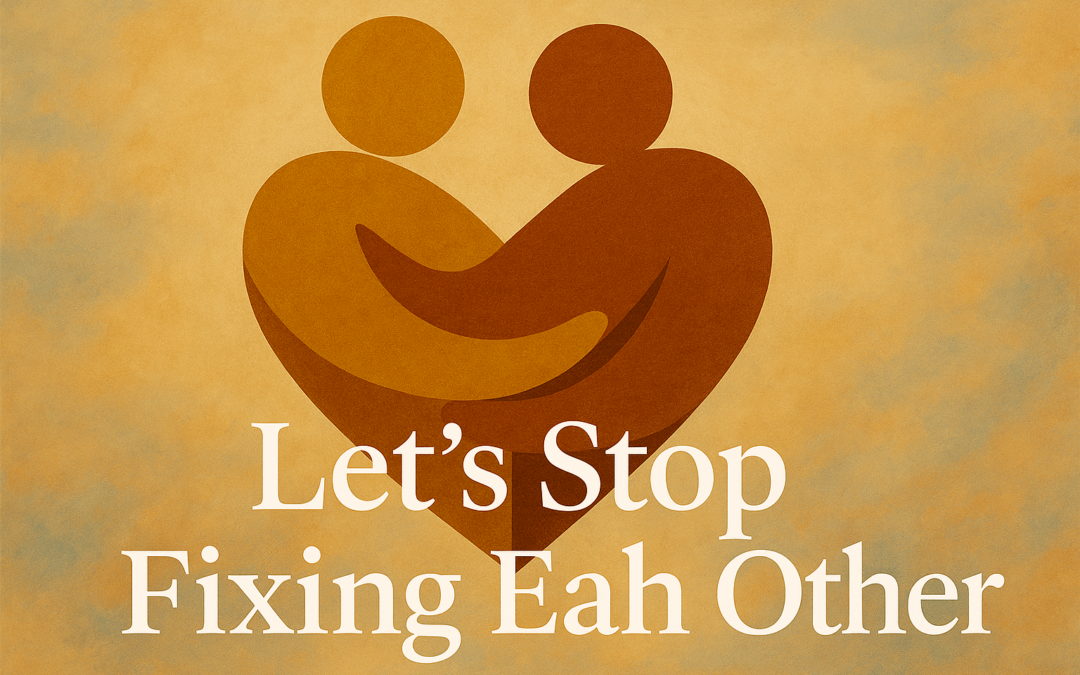This past week, something kept stirring in me. In conversations, podcasts, and unexpected moments—it echoed clearly:
We don’t need more people trying to fix us.
We need people who will truly love us.
A Shared Journey of Brokenness
If you know our story, you know we’ve walked through some fire—deep loss, unexpected transitions, hard decisions, and seasons where the weight felt unbearable. Not just in ministry or leadership, but in our own home. In our own hearts. In all of it, one truth has become clear: People don’t need answers as much as they need presence.
We live in a culture that idolizes quick solutions. In ministry and even in family life, we default to “fixing”—offering advice, quoting Scripture, prescribing answers. But love isn’t a solution. It’s a posture. It’s a presence. And often, it begins with simply being there.
The Gospel Isn’t a Fix—It’s a Transformation
I once wrote, “If the Gospel isn’t changing me, is it really the Gospel?” That still holds true. The good news of Jesus is not just about forgiveness—it’s about transformation. But transformation doesn’t come through pressure or performance. It comes through grace. Through proximity. Through Christ stepping into our mess, not escaping it.
The Gospel invites us into a love that listens. A love that lingers. A love that binds up wounds instead of pointing them out.
Love That Stays
Dr. Bruce Perry, in What Happened to You?, writes,
“Love, given and felt, is dependent upon the ability to be present, attentive, attuned, and responsive…”
That phrase stopped me. Attuned. Responsive.
Isn’t that what 1 Corinthians 13 describes?
Love that waits. Love that listens.
Love that stays, even when it doesn’t know what to say.
We talk a lot about community in the Church. But true community isn’t about shared events—it’s about shared presence. It’s about trust. Safety. Mutual grace. It’s about becoming the kind of people who make others feel held, not evaluated.
What If We Stopped Fixing?
I’ll be honest: I’m still learning this. As a husband, a father, and a leader, my instinct is to fix. But some of the most sacred moments in my life have come when I resisted that urge—and simply sat with someone. I didn’t preach. I didn’t solve. I just stayed.
We don’t become more Christlike by fixing people. We become more Christlike by loving them—especially when they’re hurting, questioning, or falling apart.
Paul captures this so beautifully in 1 Thessalonians 2:
“We were delighted to share with you not only the gospel of God but our lives as well.”
That’s it. The Gospel and our lives. Not just truth—but relationship. Not just correction—but care.
The Real Work of Healing
What if the path to healing in our churches, homes, and relationships isn’t paved with advice—but with attachment?
What if the most powerful thing we can do is become people of presence—gentle, attentive, and safe?
What if connection is the ministry?
Let’s stop fixing each other.
Let’s listen.
Let’s stay.
Let’s love with a Gospel that looks like Jesus—who knelt, who wept, who touched the untouchable, and who called the broken beloved.

